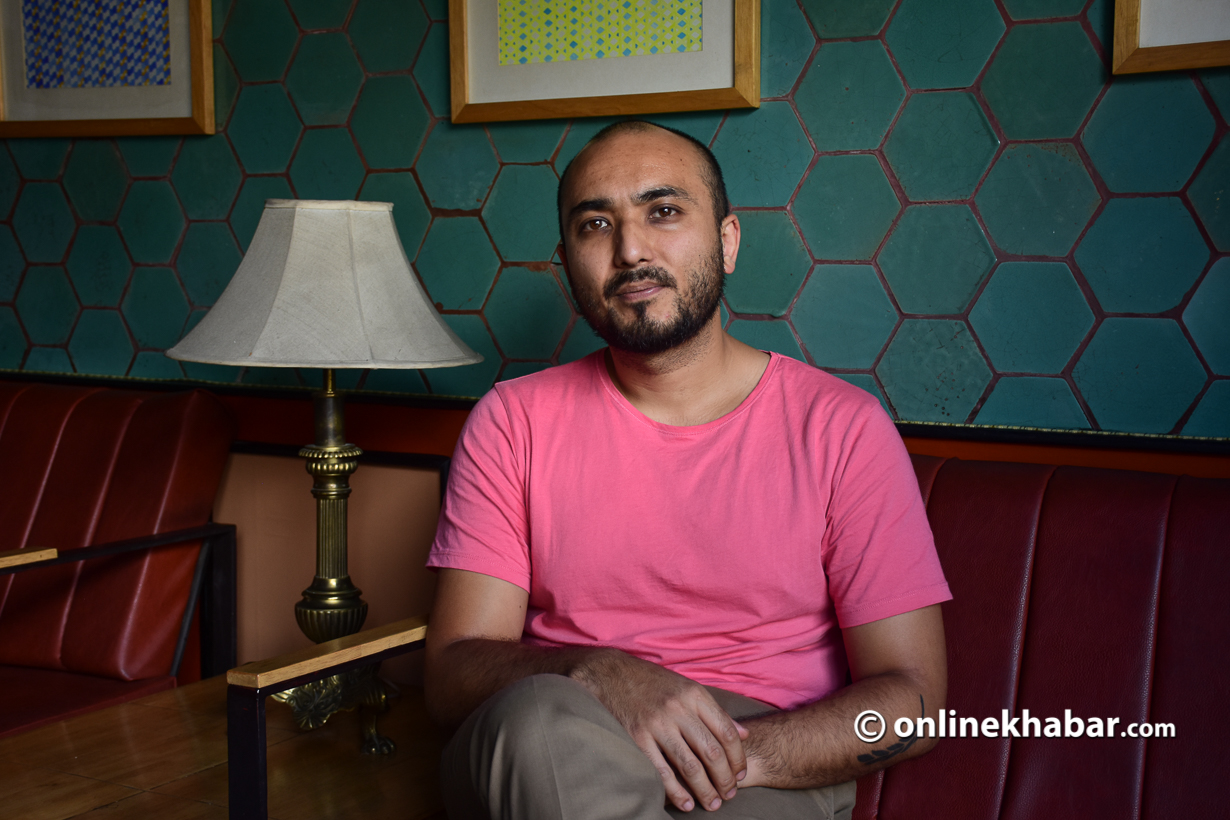Does success come easy? One might have different answers to it, but it is a common understanding that the journey to success is always different from person to person.
As for Taijash Kakshapati, he had decided he wanted to get into the hospitality business from a young age. “I spent my childhood days around the cafe, more than at home. We would run around and even sleep in the booths.”
“I felt belonged to this sector since early and I wanted to be in this field.”
And following his heart, he went to the Culinary Institute of America (CIA), New York, for his undergraduate. And soon after he graduated, he was back in Nepal and became a part of the family business established by his uncle Shyam Sundar Lal Kakshapati and father Gopal Sundar Lal Kakshapati. And it has been six years that he opened and is running the Nanglo Cafe & Pub, in Kamaladi, as its managing director. With this, while continuing the decades-old family business, the young Kakshapati also started his own innovations which he would like to expand in the future.
Starting early: Uneasy yet important
But, his journey was not that smooth. “When I first applied to the CIA, I was rejected because one of the criteria was that the applicant had to have at least six months of experience. So, I worked for six months at the Radisson (Hotel) and applied again.” This time, he got accepted.
“The whole course was very rigorous. After studying, I worked as a busboy and waited tables. Before coming back, I worked at the Four Seasons, in NY and Florida. So, I got a good educational base on how restaurants work and it helped me a lot in my work here.” Since the end of 2012, he has been occupied with the family business.
“Looking back, I feel working early was very important. You have the energy, you have the motivation and you get early experience. And, you can make mistakes and learn from them.”
But, on the flip side, being young was not easy because there were some who questioned his authority. Yet, he took it with a grain of salt. “There will always be people who comment on what you do or what you are like. But, one has to learn to compartmentalise and prioritise which ones to take seriously.”

The boon and burden of a brand
It was 1973, his father and uncle started Cafe de Park at Ratnapark. They started early at a time when restaurants were not even a business in the city.
The business that first started in the 1970s evolved as The Naglo Cafe in 1976 and The Bakery Cafe in 1991. Both the brands, along with their other ventures, operate under the Nanglo International Private Limited.
With time, The Bakery Cafe and Nanglo became household names; they changed the restaurant-going culture among Nepalis and became brands. But, leading the well-known brand, for Taijash, came with some big expectations and responsibilities.
“I struggled for a while to choose between starting my own venture or to join the family business. But, there were risks and challenges in both approaches. When I decided to join the business, it came bearing the weight of the already established brand that my father and uncle had built,” he says, “So, I had to be careful that the name was not tarnished.”
Joining the family business was a safety net for him as he had two of the pioneers to guide and mentor him. He says he has learned a lot from the duo of brothers. “Working with them and observing them, the biggest lessons I have learned is in the aspect of HR [human resources] management and financial management. They had a very hands-on approach; they would be on the field–with the staff, waiting tables–working day and night. And, there were many days when I did not even see my father at home.”
Today, Taijash at his work tries to fit in their shoes. But, being the young one with new ideas, he did see some trouble with the breakthroughs. “When you lead any business, big or small, you want to run it your way, have a part of you. But, as much as I wanted to make a change, getting them on board to change anything about the brand, even the menu, was always difficult. They had their own affection and vision for the brand, so the change was not that easy.”
Taijash believes in striking the balance. “The brand is old, but we cannot keep sticking to the old ways. If even my uncle and my father had held on to the same concept [from 1970] to date, it would not have been relevant to people today. We would not be relevant. So it was all about striking a balance [between the old and the new].”
“And you can see that in all our outlets. The brand is old, so you get the same hospitality and environment from our side. But, at the same time, when you enter our outlets, you do not feel like you are entering an old cafe. You will see the sameness in menus too. But, around 30 per cent is always changing.”
Taijash, over these years, has revisited the brand concept and mixed his own colours into the space that he manages today. In fact, he is taking the legacy further.
Covid-19 crisis and beyond

If there is something that people easily relate to is to see differently-abled people working at their restaurants. Taijash has adopted this USP of the brand and made it his own. “We tried working with three individuals with Down’s syndrome. This was in 2019 before Covid-19. They had been training with us for over three months. But, we have not been able to work with them for health reasons.”
The Covid-19 spread put a halt on their business too. Like many other changes, making deliveries was first for the brand with the new decade. But, it was a reluctant yet necessary addition. “For Nepali people, going to restaurants was always about socialising, and it served as a destination like a park where people could gather and engage. Eating out was a relatively new trend here and that behaviour stopped abruptly. So, getting food delivered was definitely not easy to mould into.”
“Though catering to Nepali customers was rather easy, what made it difficult during the lockdown was the sheer amount of home-based cooks or outlets that boomed. More so because there was no one standard of quality set for deliveries or food itself. And the government also was of no help to us, no directives and no waivers, financially. In fact, they were creating stigma among people with the rules that discouraged restaurant-going.”
“The first lockdown hit us the hardest, same as it was for all. In the second, we partially opened and got to experiment with a new system in place with takeaways and deliveries. So, we are better prepared for the third now, if and when that hits.”
Nonetheless, Taijash hopes the pandemic impact to subside as soon as possible so that he could reimplement his pending plans including employing people with Down’s syndrome and expanding his business.





















